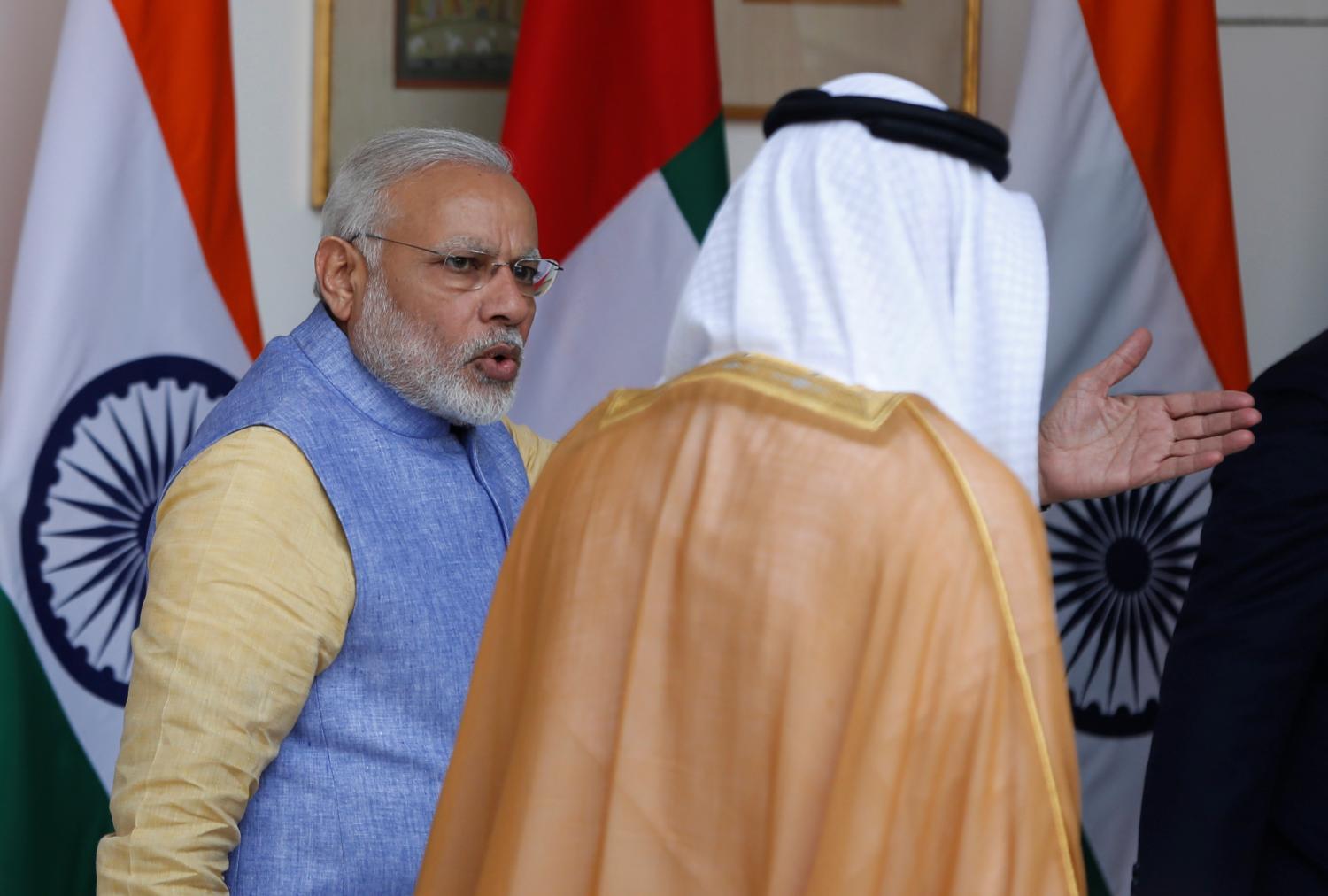Content from the Brookings Doha Center is now archived. In September 2021, after 14 years of impactful partnership, Brookings and the Brookings Doha Center announced that they were ending their affiliation. The Brookings Doha Center is now the Middle East Council on Global Affairs, a separate public policy institution based in Qatar.
Rising Asian powers like India have growing aspirations and interests, including in the Middle East. Specifically, India’s ties with the Arab Gulf states, dominated for decades by energy and labor, appear set to expand. Indian Prime Minister Narendra Modi has initiated a “Link West” policy and paid historic visits to Saudi Arabia and the United Arab Emirates in recent years. What explains this increased engagement? What does each side stand to gain from closer relations?
India-GCC relations: Delhi’s strategic opportunity
In this analysis paper, Kadira Pethiyagoda investigates India’s strategic relations with the Gulf Cooperation Council states and argues that India-GCC ties will be increasingly important for both sides in the coming decades. The paper analyzes several factors that are forcing Delhi to consider the strategic aspects of those ties, especially India’s desire to accelerate its rise as a regional and global power, the United States ceding some of its influence in the Middle East, and growing interest among GCC states to reach out to new partners.
Pethiyagoda finds that while India has several advantages in trying to boost ties with GCC states, it also faces internal constraints and competition from rivals like Pakistan and China. He argues that GCC states should take the initiative to ensure India’s cooperation on mutually beneficial opportunities. He concludes that India-GCC relations are likely to strengthen, even as India seeks to balance a complex web of relationships to further its own interests.
The Brookings Institution is committed to quality, independence, and impact.
We are supported by a diverse array of funders. In line with our values and policies, each Brookings publication represents the sole views of its author(s).




